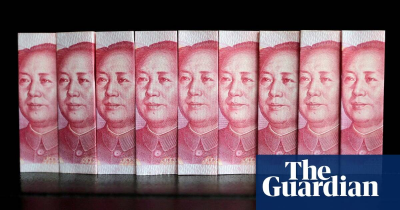The Guardian - China-China announces 05 cut in banks minimum reserves
January 24, 2024 3 min 525 words
中国央行宣布对银行最低准备金率进行0.5%的削减,释放大约1万亿元人民币用于新增贷款。此举意在提振家庭和企业贷款,支持经济脆弱复苏。尽管经济学家预期今年稍后可能降息,但中国当局出人意料地提前实施。这表明中国政府试图在2024年摆脱动荡的股市开局,为经济打下基础。股市因此宣布后,恒生指数当天收涨3.6%,创数月来最强表现。尽管一些专家认为这会在一定程度上稳定中国经济,但总体上,对经济改变方向的决定性政策干预仍然远远不足。当前中国经济信心受到2020年的疫情和房地产领域的困境影响,尽管政府采取了一些支持措施,但房地产需求低迷。在这种情况下,政府考虑更全面的刺激方案,但公开表态显示北京可能继续保持相对谨慎的态度,而非进行大规模刺激。此次降准是中国央行实施“稳健货币政策”战略的一部分。中国领导人预计将在今年三月的全国人民代表大会上设定5%的GDP增长目标。虽然官方统计显示2023年中国经济增长为5.2%,但一些经济学家认为实际增长率可能较低。对于依赖于房地产的中国家庭财富和消费需求而言,当前形势依然复杂。
China’s central bank has announced a surprise cut to the amount of cash that banks must hold in reserve, hoping to boost the lending available to households and businesses as policymakers try to steer the economy through a fragile recovery.
Pan Gongsheng, the governor of the People’s Bank of China (PBOC), said on Wednesday that the reserve requirement ratio would be cut by 0.5% from 5 February, the deepest cut to the rate since December 2021. The move will allow about 1tn yuan (£110.8bn) to be released in the form of new loans.
Economists had been expecting a rate cut later in the year. But the surprise decision came as the Chinese authorities have tried to put a floor underneath tumbling stock markets, which have set China’s economy off to a shaky start in 2024. After Pan’s announcement, the Hang Seng index closed on Wednesday up by 3.6%, its strongest performance in months.
The authorities are reportedly considering a more full-throttled stimulus package, which could be announced this week, and which would be worth about 2tn yuan.
But the government’s public statements suggest that Beijing may continue its relatively cautious approach, rather than injecting the massive stimulus that economists say is necessary to reboot the economy. The PBOC said on Wednesday that the reserve rate cut was part of its strategy of implementing “prudent monetary policies”. China’s premier, Li Qiang, said last week that China did “not seek short-term growth”. When the central bank last made a similarly deep cut, in 2021, about 80% of the unleashed funds were needed to repay loans to the central bank, rather than being doled out to households.
“It does put a floor under Chinese growth, and certainly allows some form of stability,” Samy Chaar, the chief economist at the wealth management firm Lombard Odier, told Reuters. But, Chaar added, “We’re still very, far from any kind of decisive policy intervention to really change the economic direction of the country.”
Household wealth and consumer demand in China are largely underpinned by the property sector, which accounts for between a quarter and a third of GDP. The sector has struggled to recover from the Covid-19 pandemic and a regulatory whirlwind unleashed in 2020 that crippled many major property developers, such as Evergrande and Country Garden. Hundreds of developments were abandoned, leaving homebuyers without apartments that they had poured their savings into.
That has torpedoed confidence in the economy to a degree that is proving difficult to undo, despite recent measures aimed at supporting the property sector. This month the housing ministry and the financial regulator announced plans for a new mechanism that would speed up loan approvals for property developers.
But demand for new homes remains low. The value of new home sales among the 100 biggest real estate companies dropped by 16.5% in 2023, with a 34.6% year-on-year drop in December.
China’s leaders are expected to set a GDP growth target of 5% at this year’s National People’s Congress, the parliamentary meeting that takes place every March. The economy expanded by 5.2% in 2023, according to official statistics, although some economists believe the true rate of growth was lower.

